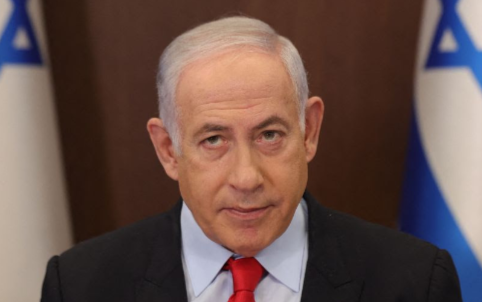Breaking: Israel's Revenge Against Iran Begins with Multiple Area Strikes

Before Iran’s recent attack on Israel, President Joe Biden had a succinct message for Tehran: “Don’t.”
However, Iran didn’t heed this warning.
Following the attack, Biden didn’t publicly reiterate his one-word advice, but it was clear that his administration preferred a restrained response from Israel. Axios reported that Biden informed Israeli Prime Minister Benjamin Netanyahu that the United States would not support any retaliatory strike from Israel and advised them, in Biden’s words, to “Take the win.”
This perspective on what constitutes a victory is interesting, especially as it became evident that the Israeli government was not inclined to follow Biden’s advice. The question was not if but when Israel would retaliate.
That question was answered early Friday morning.
“The missile launches come in response to Iran’s attack last Saturday, during which the country launched over 300 drones and missiles at various targets across Israel,” ABC News reported.
CNN noted explosions at two sites in Isfahan province—an airport and an army base.
Initially, officials in Tehran downplayed the attack. An Iranian official told Reuters that the explosions heard in Isfahan were due to Iran’s air defense systems activating, denying any missile attack against Iran.
Meanwhile, Iranian space agency spokesman Hassan Dalirian claimed on X that Iran’s defense forces successfully repelled the attack.
“They claimed to have fired 500 suicide drones and missiles at us, labeling it the world’s largest drone attack on Israel,” Dalirian wrote, as per a computer translation. “In response, we deployed three quadcopters, all of which were shot down.”
“They simply did not inform America beforehand,” Dalirian added.
میگفتن 500 تا پهپاد انتحاری و موشک به سمت ما شلیک شده و اسرائیل تحت بزرگترین حمله پهپادی جهان قرار گرفته
— Hossein Dalirian (@HosseinDalirian) April 19, 2024
حالا اون عملیات رو با 3 تا از این کوادکوپترها خواستن جواب بدن که هر سهتاشون سرنگون شدن 😂😂
تازه میگن به آمریکا هم خبر ندادن قبلش :) pic.twitter.com/bdsE4l1gls
Israel’s military declined to comment immediately to AFP, but a former Israeli Defense Forces spokesman noted that Iran had not accurately assessed the damage from the strikes yet.
“It will take them time to ascertain what occurred,” Avi Benayahu told Channel 12.
Video shows flashes in the night sky above Isfahan in Iran, where state media said three drones were shot down.
— Al Jazeera English (@AJEnglish) April 19, 2024
The country has been on alert for an Israeli attack as tensions rise after the Israeli bombing of Iran’s consulate in Syria and Iran’s attack in response. pic.twitter.com/5H5pzP94QN
Some analysts view the news reports as propaganda, drawing comparisons to official narratives supporting the former Soviet Union's communist regime, as reported by The Times.
The conflicting statements from Iranian officials suggest a lack of coherence within Iran’s military responses, with discrepancies between Reuters' report and Dalirian’s X post.
What remains clear is that the damage is limited, and a counterattack occurred, despite Iran’s statement to Israel that the matter could be considered resolved unless Israel makes another misstep, prompting a more severe Iranian response, as reported by France24.
“If Israel or its allies act recklessly, they will face a strong and decisive response,” Iranian President Ebrahim Raisi warned on Sunday.
Considering any action short of declaring the matter resolved might be deemed reckless by Tehran, the potential for escalation remains. The Times quoted a senior Iranian official as saying there was no immediate plan for retaliation.
If escalation does occur, Biden’s “don’ts” would prove ineffective, highlighting America’s vulnerability concerning our crucial Middle Eastern ally.